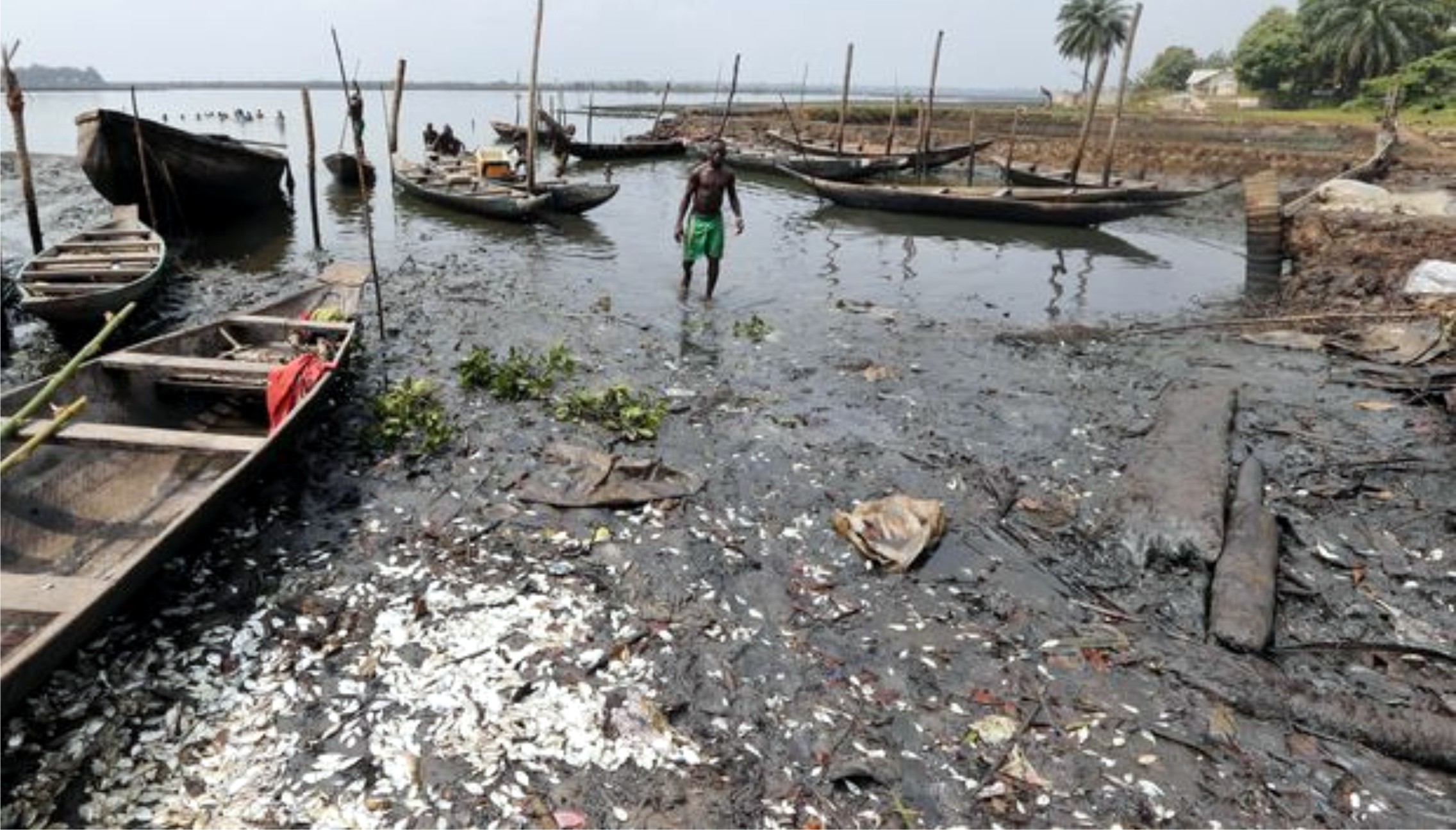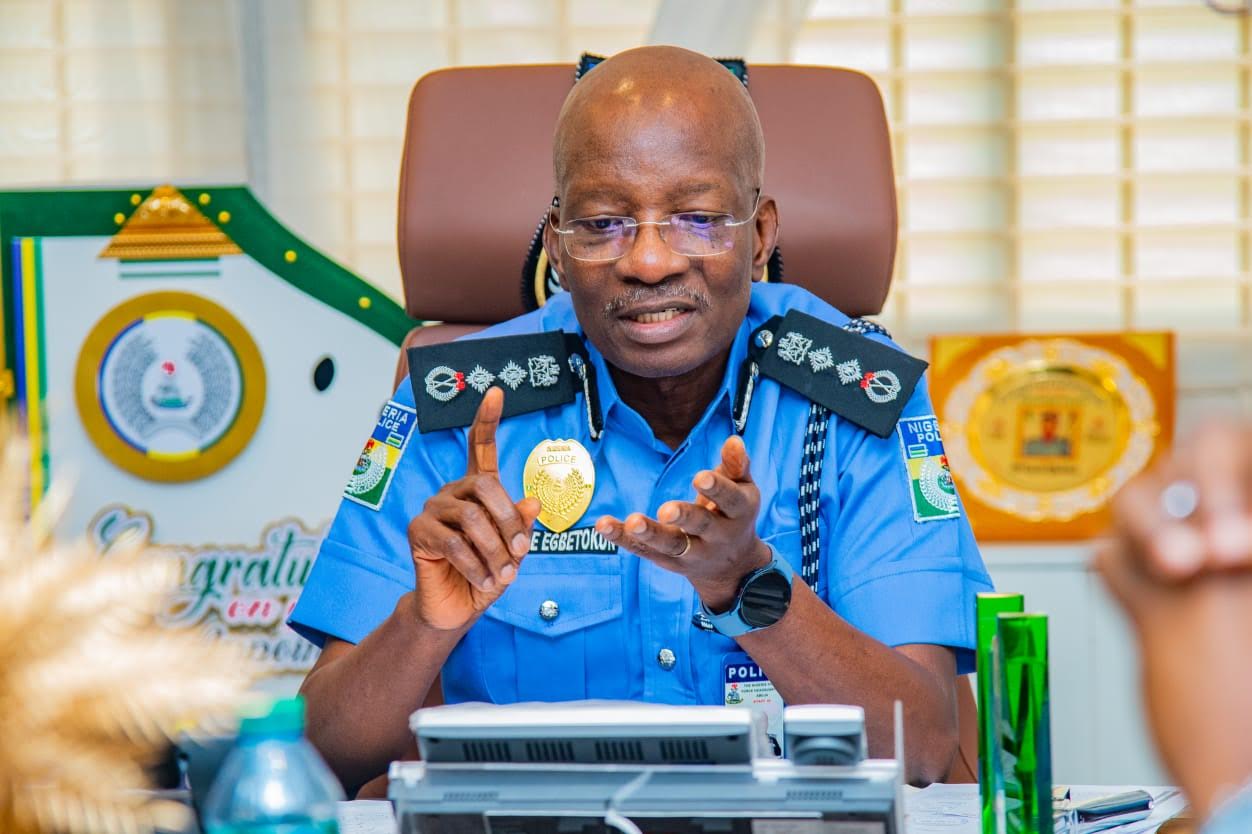News
Community Tackles SPDC Over Oil Spill …IYC Cautions Firm Against Use Of Force

Shell Petroleum Development Company (SPDC) and security agencies have been warned against the use of force in handling the oil spill protest by the people of Ojobo in Burutu Local Government Area of Delta State.
President, Ijaw Youth Council, Pereotubo Oweilaemi, gave the warning in a statement yesterday.
He noted that the siege on SPDC platform at Beniseide Flow Station by Ojobo community should not be given aggressive response.
Oweilaemi stated that the people as the host to the SPDC’s platform were only embarking on a peaceful protest which is within the ambit of the law.
“Any violent response by security agencies against the Community will be seen as a declaration of economic war of aggression and such measures will have dire consequences to our petrol dollar economy”, he said.
“SPDC should immediately look into their complaints, given rise to the peaceful protest and occupation of the platform. It is evident that Shell has not adequately discharged its corporate responsibilities to Ojobo Community in spite of the economic wealth it is getting from the Community.
“Ojobo people will not leave the platform until their demands are met. What is delaying the Ojobo Cluster Gas Turbine Project even when the Federal Government has given approval to it? The Community is in darkness. There is no potable water to drink.
“The Company should address the concerns of the people instead of bullying them. They’re only drawing the world’s attention to the sorry state the Ijaws are passing through in the hands of the multinational oil companies and their Nigerian collaborators.
“The Ijaw nation is solidly behind the peaceful protest embarked upon by Ojobo people at Beniseide Flaw Station. Any attempt to use force on them will be resisted. The security agencies should be warned.
“They should not commit themselves as willing tools in the hands of SPDC to ferment strife in the Community. Let us be guided by the history of our recent past. We need peace in the Niger Delta.”
Last week, Ojobo community issued a 48 hours ultimatum to Shell over the non-implementation of an existing General Memorandum of Understanding.
They accused Shell of not releasing funds accrued to it under an GMoU as well as failure to commence the Community Interdependency Electrification Project, CIEP.
A letter signed by Ojobo leader, Chief College Kpanduku and the Amananaowie of the community, Chief Embah Murphy, threatened to disrupt Shell’s activity in their domain if their demands were not addressed.
“If the above stated issues are not urgently resolved after the above stated time, the community will fully mobilise to the flow station to protest and SPDC should be ready to use their military to kill the people in their hundreds”, it read in part.
According to the Environmental Justice Atlas, the spill in Ojobo dates as far back as early 2001. The pollution which occurred at Isampau Manifold poisoned the Bomadi Creek down to the sea.
Shell dredging activities to access flow stations and manifolds also exposed Ojobo and its environs to flooding and erosion leading to loss of farmlands, poor harvest and rapid reduction in land mass.
Since then, there has been no proper clean up nor adequate compensation.
News
Retirement: Ignore PSC’s Directive, Remain In Office, IGP Tells Officers

The Inspector General of Police, IGP Kayode Egbetokun, has instructed all police officers affected by the recent directive from the Police Service Commission (PSC) to disregard the order.
The PSC had directed officers who have served 35 years or reached 60 years of age to retire immediately.
A wireless message from the office of the Force Secretary, dated February 11, 2025, stated that the IGP “strongly directs all officers affected by the PSC’s directive to stay action, pending further instruction.” Officers were told to comply strictly with this order.
Last week, PSC spokesman Ikechukwu Ani, explained that the commission’s order followed a review of its previous stance from the 24th plenary meeting in September 2017, allowing force entrants to use their enlistment date rather than their initial appointment date.
The commission cited inconsistencies with Public Service Rule No. 020908, which mandates retirement after 35 years of service or upon reaching 60 years of age.
However, the PSC clarified that it does not have the constitutional authority to determine the appointment or retirement of IGP Egbetokun.
News
Be Consoled, God Who Gives, Also Takes, Fubara Tells Principal Secretary

Rivers State Governor, Sir Siminalayi Fubara, has extolled the sterling motherly virtues of late Mama Ayebadieye Edward Igbeta, and urged the children not to deviate from those valuable lessons she had taught them.
Late Mama Ayebadieye Edward Igbeta (79 years) is the mother of Dr Ayebaesin Jacob Beredugo, the Principal Secretary to Governor Fubara.
The Rivers State Governor, who described Dr Beredugo as a brother, trusted ally and key stakeholder of his administration, urged him to be consoled in God and bear the loss with fortitude.
Governor Fubara gave the advise at the funeral service in honour of late Mama Ayebadieye Edward Igbeta at the Cathedral Church of St Luke, Anglican Communion in Nembe City, Nembe Local Government Area of Bayelsa State yesterday.
The Rivers State Governor said: “We are here as a government to show that in this difficult time, we stand with him. We know that there is no consolation here that can fill the gap of this loss, more especially the loss of a mother.
“But, we want to draw his mind to the good Book: that it is the Lord that giveth, and it is also the Lord that taketh. And he takes for a reason.
“We live in a corrupt world, and when you are a saint in the world, when it pleases the Almighty and He believes that He doesn’t want you to be corrupted, He takes away the soul to a better place where death is no more, where you don’t have to look for food again, where you have peace.”
Governor Fubara expressed strong belief that given the way Mama had lived and the good virtues that had been read out and said about her, there is no doubt that she will be in a good side in heaven.
The Governor decried the current condition of the cathedral where the funeral service held and committed the support of the Rivers State Government to ensure the completion of the building in memory of late Mama Ayebadieye Edward Igbeta
“We have been made to understand that the Cathedral needs strong support. We are willing to support the completion of the Cathedral. We will support the building in memory of Mama with the sum of N50million”
Delivering the sermon on the topic; “Hope in the face of death”, Bishop of the Diocese of Western Izon, Rt. Rev. Victor Okporu, said those who are confidently expecting positive future must also believe in Jesus Christ, repent of their sins, and be prepared to spend eternity with Him.
Reading the biography of the late Madam Ayebadieye Edward-Igbeta, brother of the decreased, Mr Godwin Ekine, said his late sister was an embodiment of love, care, peaceful and kind-hearted, and touched lives through her generosity and compassion.
Friends and well-wishers from Bayelsa, Rivers and Delta states, some of whom shared fun memories of the late matriarch, were later hosted to a funeral reception at King Koko’s Square in Nembe Town.
Also at the burial were the State Deputy Governor, Prof Ngozi Odu; Speaker, Rivers State House of Assembly, Rt Hon Victor Oko-Jumbo; member representing Ikwerre/Emohua Federal Constituency in the National Assembly, Hon Boniface Emerengwa; and Chief of Staff, Government House, Dr Edison Ehie.
Others are Head of Service, Dr George Nwaeke; Attorney General and Commissioner for Justice, Dagogo Israel Iboroma, SAN, Dr Tamunosis Gogo-Jaja; Chief Hanny Woko; Amaopusenibo Fubara Hart; Chief Theodore Georgewill; members of the State Executive Council; Special Advisers; top politicians, leaders and stakeholders in the State; among others.
News
Old Boys Plan Rehabilitation Of GSS, Okehi
The Chairman of the Old Boys Association of Government Secondary School (GSS), Okehi Etche, Rivers State, Prof. Sir, Umunna Offor, has stated that the association would soon visit their alma-mater and rehabilitate decayed infrastructure and facilities in the compound.
The chairman made this assertion while speaking with some newsmen after an extensive meeting of the Old Boys in Port Harcourt, recently.
Sir Offor stated that since they left the secondary school, some years ago, most of the facilities and infrastructure built by then Rivers State Government had decayed and worn out.
“ However, being responsible ambassadors and Old Boys of the college, we would not fold our arms and expect government to rebuild everything in the school compound, hence, we have decided to come together and graciously assist our alma mater’, he said.
“The meeting was basically for like-minds to gather to find a way to help the school, it is a thing of joy to see and receive old school friends and comrades who have gone far in life and have excelled in their respective chosen fields”.
Speaking in the same vein, Engr, Lasbrey Amadi; (FNSE), who is also an old boy and former member of the House of Representatives, said the association would be working in synergy with the administrators of the school to ensure that in no distant time; there would be a massive face-lift in the physical infrastructure in the school compound.
Veering into politics in Nigeria of today, Engr, Amadi, said that god-fatherism in politics had seriously killed the gains and beauty of democracy in Nigeria and quickly urged politicians to always play-down the issue of god-fatherism in politics and ensure good governance in the country.
In his comment, the Public Relations Officer (PRO) of the Association, Mr Goodluck Nwaobilor, said the door of the association is still wide open for new members who finished from the school to join and work towards taking the association to higher level.
-

 News3 days ago
News3 days agoS’South Deputy Govs Pay Condolence Visit To A’Ibom Colleague
-

 Niger Delta3 days ago
Niger Delta3 days agoHYPREP Presents Scholarship Grants To 300 Ogoni Postgraduate Students
-
Nation15 hours ago
Party Chieftain Hails LG Boss’ Dev Strides
-
Niger Delta3 days ago
Environmentalist Makes Case For Oceans Preservation
-
Sports3 days ago
Aruna, renew rivalry at Singapore Smash 2025
-
Rivers15 hours ago
Ohaneze Ndigbo-Group Hails Eze Umuokobo as Asst Treasurer
-
Business3 days ago
Expert Tasks Government On Civil Maritime Security Unit
-
Rivers18 hours ago
Community Blames Lack Of Health, Education Facilities For High Maternal, Infant Mortalities … Urges Govt For Rescue

